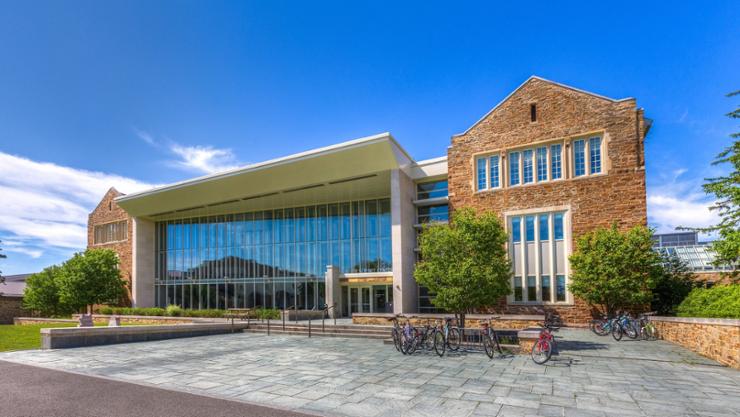How One College Aims to Help Student-Athletes Fail Better and Build Resilience

As a student-athlete, the pressure to balance academics, training, and competitions can sometimes feel overwhelming, especially when setbacks happen. Whether it’s struggling with a challenging class or facing an injury that keeps you off the field, failure is often seen as something to avoid at all costs. But what if failure, instead of being feared, was embraced as a valuable learning experience? One college is working to change the narrative around failure, and it’s something that could greatly benefit student-athletes.
Hamilton College has launched a new campaign aimed at helping students “fail better.” This initiative, led by the university’s student success division, encourages students, including athletes, to view failure as an opportunity to grow and develop resilience. The campaign’s goal is to shift the campus culture so that students, particularly those juggling demanding athletic schedules, can face challenges head-on without fear of letting down their team or academic goals.
The Importance of Resilience for Student-Athletes
For student-athletes, failure is not just about academic performance—it extends to sports as well. Missed plays, losses, and injuries are all part of the journey, but how you bounce back from these setbacks often determines future success. Hamilton’s “failing better” campaign aims to help students learn how to recover from both academic and athletic failures and use those experiences to build strength. By fostering a mindset that views challenges as opportunities to adapt and improve, students can develop the mental fortitude that is essential both in the classroom and on the field.
The university’s focus on resilience is especially timely, as research shows that many Gen Z students experience higher levels of anxiety and stress compared to previous generations. The added pressure of excelling in sports while maintaining a high GPA can amplify these challenges. According to the campaign’s coordinator, KinHo Chan, “Rather than viewing struggles with attention spans or setbacks as failure, we want to reframe these as natural learning adaptations that require support and guidance.”
Why Failure Should Be Embraced
Chan’s approach is grounded in the idea that failure is not an end but a vital step in the process of personal growth. In sports, athletes learn to accept that mistakes are part of improving their game. In the same way, this campaign encourages student-athletes to see academic challenges not as personal shortcomings but as opportunities to refine their skills and approach. As athletes, your mental toughness is as important as physical strength, and learning how to handle failure is key to becoming a well-rounded student-athlete.
Similar initiatives have been adopted at other universities. For example, James Madison University’s REBOUND program focuses on helping students recover from academic and personal setbacks, promoting resilience in the face of adversity. Pepperdine University’s RISE program supports emotional wellbeing and fosters a sense of belonging, helping students navigate challenges, including those that come with being an athlete. These programs recognize that the road to success is often paved with obstacles and that learning to overcome them is an essential skill.
Building Mental Resilience Beyond Sports
The “failing better” campaign isn’t just about academic success; it’s about preparing students for life beyond college. The ability to cope with failure is a skill that will serve student-athletes well after graduation, whether they continue in sports or transition into a professional career. Learning to embrace failure as a stepping stone to improvement can make a significant difference in a student-athlete’s long-term success, both in their chosen profession and in life.
To further enhance the campaign, Hamilton College plans to involve alumni and guest speakers who will share their personal stories of failure and how they overcame them. These real-life examples will help students see that even the most successful individuals faced setbacks along the way. Additionally, the college is integrating “failing forward” lessons into coursework, encouraging faculty to discuss failure as a critical part of the learning process.
For student-athletes, who often have a heightened sense of competition and achievement, the opportunity to learn how to handle failure in a supportive environment is invaluable. By shifting the focus from avoiding failure to learning from it, colleges can help student-athletes build the resilience they need to succeed, both on and off the field.
As student-athletes face pressures that extend far beyond the game or the classroom, Hamilton’s campaign provides a much-needed reminder that growth comes from how we respond to challenges—not just in our victories, but in our setbacks too.

